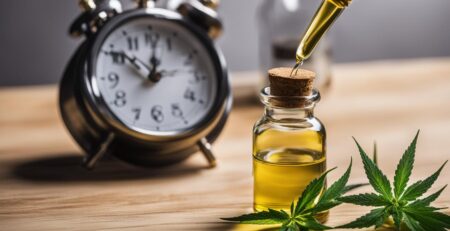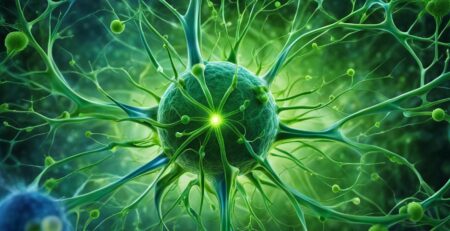Understanding CBD Oil and Drug Tests: What to Expect
The use of CBD oil has become increasingly popular, but many people are concerned about how it may affect their drug test results. The interaction between CBD oil and drug tests can be complicated and depends on factors such as the type of CBD oil being taken, the type of drug test being conducted, and the timing of the test. It's important to understand these factors in order to know what to expect when it comes to CBD oil and drug tests.
Key Takeaways:
- CBD oil itself does not typically show up on a drug test, as it is not an illegal substance and is not typically tested for.
- However, some drug tests may be designed to detect the presence of THC, the psychoactive compound found in marijuana.
- Choosing CBD oil products derived from hemp and undergoing proper extraction processes can help minimize the risk of THC contamination.
- There are different types of CBD oil, including CBD isolate, full-spectrum CBD oil, and broad-spectrum CBD oil, which can impact drug test results.
- Factors such as drug testing regulations, sensitivity and accuracy of tests, and dosage and frequency of CBD oil use can affect the likelihood of a positive drug test result.
Does CBD Oil Show Up on a Drug Test?
The use of CBD oil has gained significant popularity, but concerns about its impact on drug test results have arisen. Understanding whether CBD oil shows up on a drug test requires consideration of various factors, such as the type of CBD oil being consumed and the type of drug test being administered.
CBD oil itself does not typically show up on a drug test as it is not an illegal substance and is not commonly tested for. However, it is important to note that some drug tests may be designed to detect the presence of THC, the psychoactive compound found in marijuana. If a CBD oil product is contaminated with THC, it is possible for the drug test to yield a positive result.
The level of THC in CBD oil can vary depending on factors such as the quality of the hemp used and the extraction methods employed. To minimize the risk of THC contamination, it is crucial to choose CBD oil products derived from hemp and that have undergone proper extraction processes to ensure a low THC content.
| Type of CBD Oil | Potential Impact on Drug Test Results |
|---|---|
| CBD isolate | Unlikely to result in a positive drug test, as it does not contain THC |
| Full-spectrum CBD oil | Potential for a positive drug test if the THC content is above the detection threshold |
| Broad-spectrum CBD oil | Less likely to result in a positive drug test, as the THC has been removed |
It is important to note that the likelihood of CBD oil showing up on a drug test can also be influenced by individual factors, such as the specific drug testing regulations and policies in place. The sensitivity and accuracy of drug tests can vary, leading to potential false positives or false negatives. Additionally, the dosage and frequency of CBD oil use can impact the accumulation of THC in the body, potentially affecting drug test results.
Types of CBD Oil and Drug Testing
When it comes to CBD oil and drug testing, it's important to understand the different types of CBD oil and how they can impact the results. The three main types of CBD oil are CBD isolate, full-spectrum CBD oil, and broad-spectrum CBD oil.
CBD Isolate:
CBD isolate is the purest form of CBD oil, containing only the cannabinoid CBD and no other compounds or cannabinoids. It does not contain any THC, which means it is unlikely to result in a positive drug test. If you are concerned about drug testing, CBD isolate may be the best option for you.
Full-Spectrum CBD Oil:
Full-spectrum CBD oil contains all the cannabinoids and compounds naturally present in the hemp plant, including THC. The THC content in full-spectrum CBD oil can vary, and if it exceeds the detection threshold of the drug test, it can result in a positive test. If you are subject to drug testing and use full-spectrum CBD oil, it's important to be aware of the THC content and choose products with lower THC levels.
Broad-Spectrum CBD Oil:
Broad-spectrum CBD oil is similar to full-spectrum CBD oil, as it contains all the cannabinoids and compounds found in the hemp plant. However, the THC is removed during the extraction process, reducing the risk of a positive drug test. If you want to avoid THC but still benefit from other cannabinoids, broad-spectrum CBD oil may be a suitable option.
| Type of CBD Oil | THC Content | Risk of Positive Drug Test |
|---|---|---|
| CBD Isolate | No THC | Unlikely |
| Full-Spectrum CBD Oil | Contains THC | Possible if THC content is high |
| Broad-Spectrum CBD Oil | No THC (THC removed) | Unlikely |
Understanding the different types of CBD oil and their potential impact on drug testing is crucial. If you are concerned about drug test results, it is recommended to choose CBD isolate or broad-spectrum CBD oil products that have been tested for THC content. Always consult with a healthcare professional or legal expert for personalized advice regarding CBD oil and drug testing.
Factors Affecting CBD Oil and Drug Test Results
When it comes to CBD oil and drug testing, there are several factors that can influence the results. It's important to consider these factors in order to have a better understanding of what to expect when undergoing a drug test while using CBD oil.
One of the key factors is the specific regulations and policies regarding drug testing in employment or workplace settings. The rules can vary from state to state, so it's crucial to be aware of the guidelines in place in your location. Some states may have specific regulations that address the use of CBD oil and drug testing in these contexts.
Another factor to consider is the sensitivity and accuracy of the drug tests themselves. Different tests may have different detection levels and may vary in their ability to accurately identify the presence of THC or its metabolites. This means that there is a potential for both false positives and false negatives when it comes to drug test results.
Additionally, the dosage and frequency of CBD oil use can also impact the likelihood of a positive drug test. Higher doses or more frequent use of CBD oil may increase the chances of THC accumulation in the body, which could potentially trigger a positive result on a drug test.
| Factors Affecting CBD Oil and Drug Test Results | |
|---|---|
| Regulations and policies regarding drug testing in employment or workplace settings | Varies by state |
| Sensitivity and accuracy of drug tests | Potential for false positives and false negatives |
| Dosage and frequency of CBD oil use | Higher doses or more frequent use may increase chances of THC accumulation |
Understanding the Drug Testing Process
When it comes to drug testing, it's important to understand the process in order to have realistic expectations regarding CBD oil and its detection. The most common method of drug testing is collecting a urine sample, which is cost-effective and non-invasive. This urine sample is then tested for the presence of various drugs, including THC. There are different types of drug tests, such as immunoassay testing and gas chromatography-mass spectrometry testing, each with its own accuracy and detection levels.
It's crucial to note that drug tests don't specifically target CBD oil itself. Instead, they focus on detecting the presence of THC, the psychoactive compound found in marijuana. CBD oil derived from hemp typically contains minimal THC, if any at all, making it unlikely to result in a positive drug test. However, it's important to be aware that some CBD oil products may be contaminated with THC, which could potentially trigger a positive result on a drug test.
“Drug testing typically involves collecting a urine sample, which is the most common method due to its cost-effectiveness and non-invasive nature.”
To minimize the risk of THC contamination, it's essential to choose CBD oil products that are derived from hemp and have undergone proper extraction processes. Ensure that you are purchasing CBD oil from reputable sources that provide third-party lab test results to verify the product's purity and THC content. By selecting high-quality CBD oil, you can reduce the likelihood of a positive drug test result.
The Drug Testing Process
Here is a breakdown of the drug testing process:
| Step | Description |
|---|---|
| Collection | A urine sample is collected from the individual undergoing the drug test. |
| Testing | The urine sample is then tested for the presence of various drugs, including THC. |
| Results | The test results are analyzed, and if THC or its metabolites are detected above the cut-off level, the test is considered positive. |
By understanding the drug testing process, individuals can make informed decisions when using CBD oil and undergoing drug tests. It's important to remember that the presence of THC, rather than CBD oil itself, is the key factor that can impact drug test results. By choosing high-quality CBD oil products and being aware of the type of drug test being conducted, individuals can minimize the risk of a positive drug test while enjoying the potential benefits of CBD oil.
CBD Oil and the Cut-Off Levels for Drug Tests
When it comes to CBD oil and drug tests, one important factor to consider is the cut-off levels set for the detection of THC or its metabolites. These cut-off levels determine whether a drug test result is positive or negative for THC, the psychoactive compound found in marijuana. If the amount of THC in a CBD oil product is below the cut-off level, it is less likely to trigger a positive drug test result.
The specific cut-off levels can vary depending on the type of drug test being conducted and the regulations in place. For example, some drug tests have a cut-off level of 50 nanograms per milliliter (ng/mL) for THC. This means that if the concentration of THC in a urine sample is below 50 ng/mL, the result is considered negative.
To give you a better understanding, here is an example of a table showing the cut-off levels for THC in different types of drug tests:
| Drug Test Type | Cut-Off Level for THC |
|---|---|
| Urine Test | 50 ng/mL |
| Saliva Test | 4 ng/mL |
| Blood Test | 1-5 ng/mL |
It's important to be aware of these cut-off levels when using CBD oil and undergoing a drug test. Choosing CBD oil products that have been tested and certified to contain low levels of THC can help minimize the risk of a positive drug test result.
CBD Oil and False Positives on Drug Tests
One concern when it comes to CBD oil and drug tests is the possibility of false positives. While CBD oil itself may not cause a false positive on a drug test designed to detect THC, there are factors that can contribute to inaccurate results. Cross-contamination during production or errors in testing procedures can lead to false positives.
To minimize the risk of false positives, it's crucial to use CBD oil products from reputable sources that have stringent quality control measures in place to prevent contamination. It's also advisable to inform the testing facility or employer about CBD oil use in advance to ensure accurate interpretation of the test results.
“Cross-contamination during production or errors in testing procedures can lead to false positives.”
By being proactive and transparent about CBD oil use, individuals can help prevent false positives and ensure that their drug test results accurately reflect their CBD oil consumption.
| Factors Contributing to False Positives on Drug Tests | Prevention Measures |
|---|---|
| Possible cross-contamination during production | Choose CBD oil products from reputable sources with strict quality control measures |
| Errors in testing procedures | Inform the testing facility or employer about CBD oil use in advance |
Legal Considerations for CBD Oil and Drug Testing
The legal landscape surrounding CBD oil and drug testing can be complex. While CBD oil derived from hemp with less than 0.3% THC is legal under federal law, state laws may vary. Some states have specific regulations regarding CBD oil and drug testing in employment or workplace settings. It's important to understand the legal considerations in your specific state and to consult with legal counsel if needed.
In states where CBD oil is legal, employers may still have the right to conduct drug tests and set their own policies regarding CBD oil use. Some employers may have a zero-tolerance policy for any THC presence, while others may have more lenient guidelines. It's important to review your company's drug testing policy and seek clarification if needed.
Additionally, it's crucial to be aware of any industry-specific regulations or licensing requirements that may impact drug testing and CBD oil use. Certain professions, such as law enforcement, transportation, and healthcare, may have stricter drug testing policies due to safety concerns.
Table: CBD Oil and Workplace Drug Testing Regulations
| State | CBD Oil Legal Status | Workplace Drug Testing Regulations |
|---|---|---|
| Alabama | Legal | No specific regulations |
| California | Legal | No specific regulations |
| Florida | Legal | Employers may have policies restricting CBD oil use |
| Texas | Legal | No specific regulations |
Note: The table above is not comprehensive and is intended for illustrative purposes only. It's important to consult your state's specific laws and regulations regarding CBD oil and drug testing in the workplace.
Understanding the legal framework surrounding CBD oil and drug testing is crucial for individuals using CBD oil and for employers navigating drug testing policies. It's important to stay informed about any changes or updates to the laws in your state and to consult with legal professionals for guidance when needed.
Conclusion
After considering the interaction between CBD oil and drug tests, it is clear that there are several factors to be aware of. The type of CBD oil being used, the specific drug testing process, and individual factors can all influence the likelihood of a positive drug test result. It is important to stay informed and understand the various factors at play when using CBD oil and undergoing drug testing.
It is advisable to choose CBD oil products that are derived from hemp and have undergone proper extraction processes to minimize the risk of THC contamination. Additionally, being aware of the regulations and policies regarding drug testing in employment or workplace settings is crucial. The sensitivity and accuracy of drug tests can vary, so false positives or false negatives are possible.
To mitigate the risk of false positives, it is recommended to use CBD oil products from reputable sources and inform the testing facility or employer about CBD oil use in advance. It is also essential to stay updated on the legal considerations surrounding CBD oil and drug testing, as federal and state laws may differ.
In conclusion, CBD oil can potentially impact drug test results, and it is important to be well-informed and prepared when using CBD oil and undergoing drug testing. If you have specific concerns or questions about CBD oil and drug tests, it is advisable to consult with legal counsel or trusted experts.
FAQ
Does CBD oil show up on a drug test?
CBD oil itself does not show up on a drug test as it is not an illegal substance and is not typically tested for. However, some drug tests may be designed to detect the presence of THC, the psychoactive compound found in marijuana. If a CBD oil product is contaminated with THC, it is possible to fail a drug test.
What types of CBD oil can impact drug test results?
There are different types of CBD oil that can impact drug test results. CBD isolate is pure CBD and does not contain THC, making it unlikely to result in a positive drug test. Full-spectrum CBD oil contains all the cannabinoids and compounds naturally present in the hemp plant, including THC. This type of CBD oil can lead to a positive drug test if the THC content is above the detection threshold. Broad-spectrum CBD oil is similar to full-spectrum but has the THC removed. This type of CBD oil is less likely to result in a positive drug test.
What factors can affect CBD oil and drug test results?
Several factors can affect the likelihood of CBD oil causing a positive drug test result. Specific regulations and policies regarding drug testing in employment or workplace settings can vary, as can the sensitivity and accuracy of drug tests. The dosage and frequency of CBD oil use, as well as the type of CBD oil being used, can also impact the results.
How does the drug testing process work?
Drug testing typically involves collecting a urine sample, which is the most common method due to its cost-effectiveness and non-invasive nature. The urine sample is then tested for the presence of various drugs, including THC. There are different types of drug tests, each with its own accuracy and detection levels.
What are the cut-off levels for THC detection in drug tests?
Drug tests have set cut-off levels for the detection of THC or its metabolites. If the amount of THC in a CBD oil product is below the cut-off level, it is less likely to trigger a positive drug test result. The cut-off levels can vary depending on the type of drug test being conducted and the specific regulations in place.
Can CBD oil cause false positives on drug tests?
While CBD oil itself may not cause a false positive on a drug test designed to detect THC, there is a potential for false positives due to factors such as cross-contamination or errors in testing. To minimize the risk of false positives, it's important to use CBD oil products from reputable sources and to inform the testing facility or employer about CBD oil use in advance.
What are the legal considerations for CBD oil and drug testing?
The legal landscape surrounding CBD oil and drug testing can be complex. While CBD oil derived from hemp with less than 0.3% THC is legal under federal law, state laws may vary. Some states have specific regulations regarding CBD oil and drug testing in employment or workplace settings. It's important to understand the legal considerations in your specific state and to consult with legal counsel if needed.
Source Links
- https://checkr.com/blog/does-cbd-show-up-on-drug-test
- https://spigglelaw.com/what-happens-if-you-fail-an-employers-drug-test-because-of-cbd/









Leave a Reply